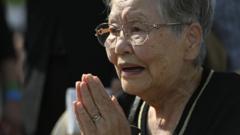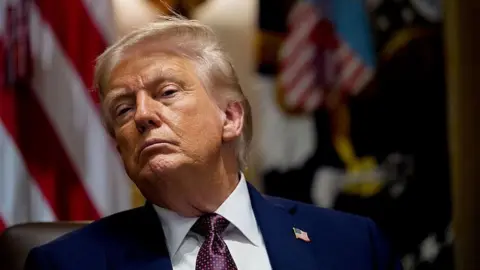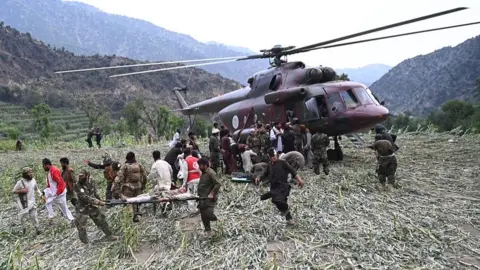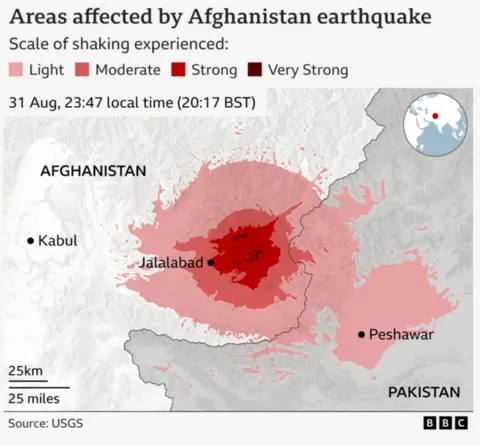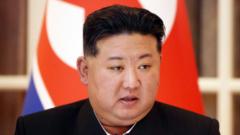In a solemn prayer held at Hiroshima's Peace Memorial Park, attendees gathered on Wednesday to mark 80 years since the catastrophic atomic bombing by the United States during World War II. The ceremony saw Japan's Prime Minister Shigeru Ishiba alongside Hiroshima's mayor Kazumi Matsui, who outlined a growing global concern regarding military buildup and the dangerous normalization of nuclear weapons in national defense strategies.
The historic bombings, which led to Japan's surrender and ended the Second World War, claimed over 200,000 lives, many succumbing to the effects of radiation. Hiroshima survivor Shingo Naito poignantly recalled the aftermath of the bombing, describing how it altered his family forever. In an effort to educate younger generations, Naito, who lost his father and siblings in the blast, has been sharing his story with students, inspiring them to capture his harrowing memories through art.
Mayor Matsui highlighted an urgent warning regarding the nuclear Non-Proliferation Treaty, stating it is in perilous jeopardy and urged Japan to ratify the Treaty on the Prohibition of Nuclear Weapons, established in 2021 to eliminate nuclear arms. While over 70 countries support the treaty, nuclear powers such as the United States and Russia have resisted, citing security concerns.
The atomic bomb legacy remains a contentious issue in Japan, prompting public protests advocating for nuclear disarmament leading up to the memorial. Survivor Satoshi Tanaka expressed his deep anguish seeing contemporary conflicts, such as those in Gaza and Ukraine, reminding him of his painful past. He emphasized the pressing need for global action and outrage against nuclear arsenals that endanger humanity.
As Hiroshima reflects on its past, the call for a united international effort towards a nuclear-free world reverberated throughout the memorial; a collective responsibility to ensure that "atomic bomb hell must never be repeated."

